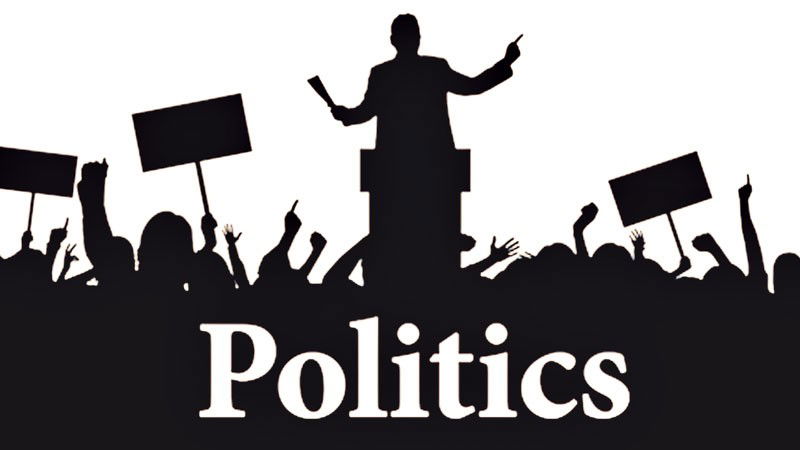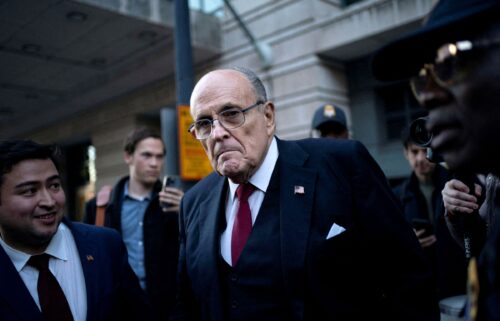Donald Trump’s history on race makes his ‘lynching’ comment crystal clear

On Tuesday morning, the President of the United States described the impeachment investigation against him as a “lynching.” This is not by accident.
Throughout his life — and especially in his latest turn as a politician — Trump has shown a willingness to weaponize race for his own gain.
He has also shown that he possesses a deep and abiding victim complex, convinced he has been persecuted in ways that few, if any, people have ever endured in the history of the country.
By comparing his current situation to lynching, Trump is engaging in both the weaponizing of race and his sense of victimhood. He is purposely dredging up some of the darkest images of our country to vent his anger and rally his supporters to his cause.
It is, in a word, gross.
Start here. According to stats provided by the NAACP, there were 4,743 lynchings in the US between 1882 and 1968, with roughly three-quarters of the victims being African-American. It was an act employed by whites to terrify African-Americans in the wake of the Civil War, a murder so public and brash that it made clear that they could do whatever they wanted to blacks with no recourse. (Unfortunately, far too often, that wasn’t just the intended message, it was the reality.)
To say that Trump’s current situation is even in the same ballpark as the murders of African-Americans is an insult to those who lost their lives at the hands of racists. So deluded is Trump about himself and the attempts to hold him accountable that he may well actually believe that the comparison to a lynching is apt. (Trump has recently also compared the impeachment investigation to a “coup,” a similarly massive exaggeration that suggests a truly incredible level of not-getting-it.)
That’s no excuse, however. It is Trump’s job as president to understand that his words have meaning and that when he invokes things like lynchings he is engaging in deeply offensive and dangerous rhetoric. This would be true even if we didn’t have example after example of Trump either flirting with or outright embracing racist ideas and sentiments.
Consider:
* Trump suggested that white nationalist violence in Charlottesville, Virginia, was the result of bad actors on both sides.
* He initially refused to condemn former KKK official David Duke, who endorsed his presidential campaign. (Trump later said he didn’t hear the question properly.)
* He was the most prominent and high-profile advocate of a debunked conspiracy theory that President Barack Obama was not born in the United States.
* He attacked both NBA star LeBron James and CNN anchor Don Lemon as dumb.
* During the 2018 campaign, Trump regularly called California Rep. Maxine Water as a “low IQ individual.”
* In a meeting in the Oval Office on immigration, Trump reportedly referred to African immigrants as coming from “s***-hole countries.”
(Trump was even accused of actual discrimination in the past, when he and his father were the subject of a federal lawsuit in the early 1970s for allegedly engaging in racial discrimination. The case was settled without an admission of guilt, but as part of the settlement, the Trumps had to place ads in newspapers to say that they welcomed black applicants at their buildings.)
There’s many, many more examples, but you get the idea: This is a President with a long — and poor — history of talking about race in this country. While he insists he is the “least racist person in the world,” his rhetoric suggests a mindset willfully ignorant of the deep racial fissures in the country. And in truth, it’s worse than that. Trump isn’t just ignorant about what his words mean. He understands that, whether or not he believes what he says on race, there is power is playing at racial fears — particularly as a motivator to his white base.
The slogan “Make America Great Again” — one that Trump has described as the greatest campaign motto of all time — gets at that subtle but purposeful weaponizing of race and racial language. The idea inherent in it is that America was once great and can be again. But great for whom? Presumably, America is a better place today for African-Americans, women and gay people than it was even a few decades ago.
Why can’t Trump see any of that? Is it because his own sense of victimhood is so great that it blinds him to realities that are as plain as day to many of us? Or is it because he chooses not to see those realities, knowing that there is political power in playing to the strong sense of grievance and bitterness that runs through certain segments of white America?
In truth, the root of Trump’s behavior is far less important than the outcome — furthering already extant racial divides in the country through the use of deeply hurtful historical moments and rhetoric that rightly stings the ears of many Americans who hear it.
That Trump doesn’t seem to care speaks volumes about his utter abdication of the presidency as a beacon of moral leadership to the country and the world.

